 “When people in one’s own town are in trouble and need to be saved from brutal torture and being burnt at the stake (a common practice of the Catholic Inquisition), it is morally indefensible for a supposedly public-spirited padre to travel to another region or country to save people in trouble there, while at the same time ignoring the plight of his own town folk.” – Shenali D. Waduge
“When people in one’s own town are in trouble and need to be saved from brutal torture and being burnt at the stake (a common practice of the Catholic Inquisition), it is morally indefensible for a supposedly public-spirited padre to travel to another region or country to save people in trouble there, while at the same time ignoring the plight of his own town folk.” – Shenali D. Waduge
 Joseph Vaz, (21 April 1651, Benaulim, Goa – 16 January 1711, Kandy, Sri Lanka) was a Catholic Oratorian priest from Goa. He is called the ‘Apostle of Ceylon’ by the Catholic Church. On 21 January 1995, he was beatified by Pope John Paul II in Colombo.
Joseph Vaz, (21 April 1651, Benaulim, Goa – 16 January 1711, Kandy, Sri Lanka) was a Catholic Oratorian priest from Goa. He is called the ‘Apostle of Ceylon’ by the Catholic Church. On 21 January 1995, he was beatified by Pope John Paul II in Colombo.
Father Joseph Vaz smuggled himself to Ceylon incognito in 1687 (145 years after Francis Xavier travelled to Goa to carry out the Inquisition under the direction of his Jesuit leader Ignatius Loyola and 182 years after the Portuguese had first set foot in Ceylon).
Joseph Vaz came to Sri Lanka ostensibly to save the local Catholics from Dutch Calvinist persecution. It was also a period when the Goa Inquisition was at its peak. Hindus, Muslims, Jews and even some local Christians were subject to it.
Joseph Vaz who is hailed as Asia’s greatest Christian missionary in respect of whom even Portugal had issued a commemorative postage stamp on the 300th anniversary of his birthday could not have been unaware of the unrelenting Portuguese persecution of non-Christians and the inhumane practices of the Portuguese Inquisition in Goa.
The well-known aphorism ‘Charity begins at home’ applies to Joseph Vaz as well. Why did he not remain in his home town Goa to save his fellow Goans from the persecution of his Portuguese co-religionists instead of coming to Ceylon to save the converted Sinhalese and Tamil Catholics from alleged Dutch Calvinist persecution?
Was he a passive spectator of these crimes or accomplice to the Portuguese Inquisition of the innocent Goan people who were not prepared to submit to Portuguese pressure to change religion or become Rice Christians. This tendency to embrace another religion purely for inducements was a well-known practice in Sri Lanka and many other Asian countries that were subject to Western Christian colonial rule and it carried the derogatory epithet ‘Rice Christianity’.
 In the interest of historical truth and probity, this is a valid question and honest answers must be supplied by those who hero-worship Joseph Vaz.
In the interest of historical truth and probity, this is a valid question and honest answers must be supplied by those who hero-worship Joseph Vaz.
When people in one’s own town are in trouble and need to be saved from brutal torture and being burnt at the stake (a common practice of the Catholic Inquisition), it is morally indefensible for a supposedly public-spirited padre to travel to another region or country to save people in trouble there, while at the same time ignoring the plight of his own town folk.
There are three possible answers to explain the conduct of Joseph Vaz vis-a-vis the Goa Inquisition:
1) He knew of the abominable crimes being committed (like the manner in which the Germans are being accused of their failure to stop Nazi abuses under the Third Reich) but lacked the interest or moral courage to speak out against such crimes, or
2) He was complicit in these crimes directly or indirectly, or
3) He was fanatically loyal to his Catholic faith and any abuses committed in the name of the Holy Church and Jesus Christ did not register in his mind as unlawful or unacceptable.
The French philosopher Voltaire said:
Goa is sadly famous for its Inquisition, equally contrary to humanity and commerce. The Portuguese monks made us believe that the people worshiped the devil, and it is they who have served him.
Did Joseph Vaz visit Ceylon in a state of mental delusion thinking that the Portuguese Inquisition in Goa being carried out by his co-religionists was appropriate and just and that the Pope and the Catholic Church were infallible and can do no wrong?
In Sri Lanka the jury is still out on Joseph Vaz. – Onlanka News, 14 January 2014
» Shenali Waduge is a Sri Lankan civil society writer concerned about fair play in all matters that concern citizens of her country as well as the world at large.
Filed under: sri lanka | Tagged: canonization, christian, christianity, goa, inquisition of goa, joseph vaz, missionaries, pope francis, roman catholic church, sri lanka |


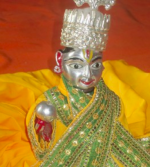


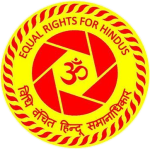



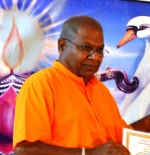
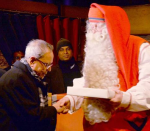


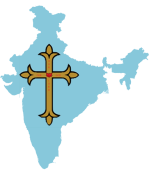






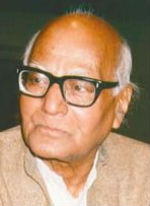


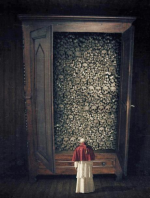



Leave a comment